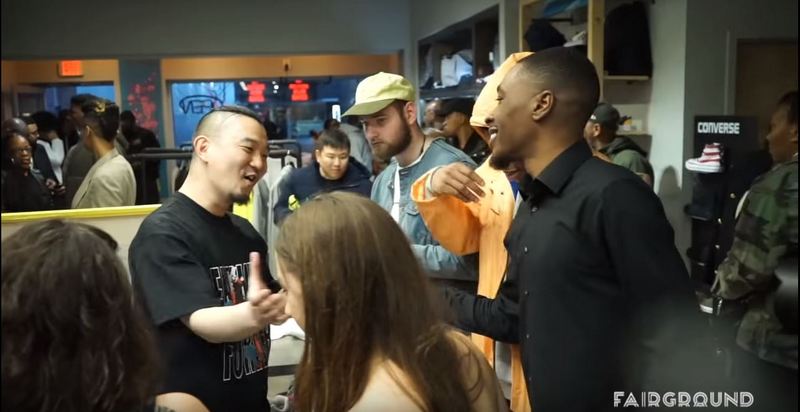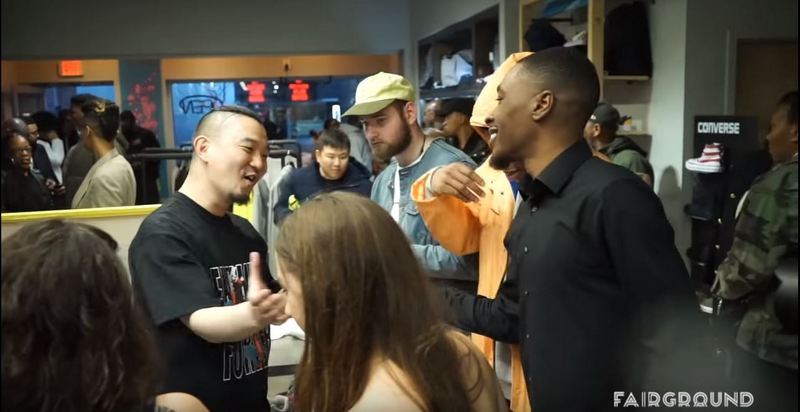[ad_1]
By Christina Sturdivant Sani, Special to the AFRO
As Washington’s creative economy thrives, four D.C.-area natives want newcomers to know that the city was cool before #madeindc was a slogan branded on t-shirts and coffee mugs.
For decades, people have been putting down roots in the District, and the fruits of their labor are bringing more folks to the table. “We want to champion and document the creativity, attention to detail and hustle mindsets of D.C.’s entrepreneurs of color,” Matt Ashton, told the AFRO.

Ashton is one of four co-founders of Black-owned creative media company Fairground Times. “The depiction of millennials tends to vary in today’s media, but one thing others cannot doubt is our ability to create and innovate,” said Ashton. “Now is the time to tell these stories because we are best-equipped to tell them.”
Fairground’s latest project is called Set-Up Shop, which Ashton directed. Streaming on YouTube, it features creative entrepreneurs who grew up in the D.C. area and remain, as well as others who are making their mark in other major cities like New York, Atlanta, and LA.
“This is the first time we can actually get an in-depth look at our city’s history and culture on a modernized level,” said Donte Player, a co-founder and editor on the project. The series is meant to serve as moving storyboard and inspiration for people—from Generation X to Millennials—who are “bucking traditional careers to build independent ventures,” said Geronimo Collins, a co-founder and creative lead.
“Everybody wants to see what they should be doing so that they can muster up the courage to move forward,” added Ryan Gordan, co-founder and videography lead. “Your testimony is one of the most important things you can share with the world.”
“Set Up Shop’s” first episode features Doyle Song, owner of streetwear brand Enemies Forever. An Asian designer, Song has spent years in D.C.’s fashion and retail industry. “I’m really just a person who’s trying to progress our community as a whole where [we] can do things on a national level,” Song said, in the 20-minute film.
“I might not be the guy who gets there but maybe I’ll inspire the kid who wants to be better than me,” he said. Meanwhile, the short film features a bevy of locals who vouch for his design aesthetic and loyalty to his brand.
While the film ends with the opening of Song’s storefront at sneaker and apparel shop WARD9 in Silver Spring, Maryland, the story isn’t all glitz and glamour. And that’s the point.
Many accounts of hometown heroes aren’t laced with setbacks. “We don’t see enough of the unsexy parts that go into making a name for oneself,” said Collins. “We’ll hear it rhetorically after someone has made it and even then, it’s another redundant cliché.” These perceptions leave many budding entrepreneurs with a false sense of what it takes to blaze a trail, he said, explaining why the documentary’s authentic storytelling is a reward for viewers. “You can do this but you gotta put the good with the bad to even get to great.”
The next episode of “Set Up Shop” will showcase the restaurant industry, with hopes of equipping viewers with “both tangible and intangible takeaways that they could immediately add to their own respective creative arsenals,” said Ashton. “‘Set-Up Shop’ doesn’t seek to just entertain or educate, but also empower.”
[ad_2]
Source link

